In June, 1987, protests that cried out for the overthrowing of the dictatorship of the Chun Doo-hwan government continued for about 20 days throughout the country. Chun Doo-hwan came into power by putting down the May 18th Democratic Uprising in 1980 through military force. He tried to maintain his power by changing the Yusin constitution for the Revitalizing Reforms constitution, but students and citizens who sincerely longed for democracy intensely protested against him. Chun Doo-hwan tried to suppress people through violence. As a result, Park Jong-cheol, one of the students who protested against him, was tortured to death during the interrogation of the police, but the police tried to cover-up the case by announcing the cause of his death to be heart attack. The case, however, became known to the world through one brave reporter, Shin Seong-ho, who became a professor of the Department of Journalism and Mass Communication at SKKU. As 30 years have now passed, the Sungkyun Times (SKT) met professor Shin Seong-ho to hear the vivid story of 1987.
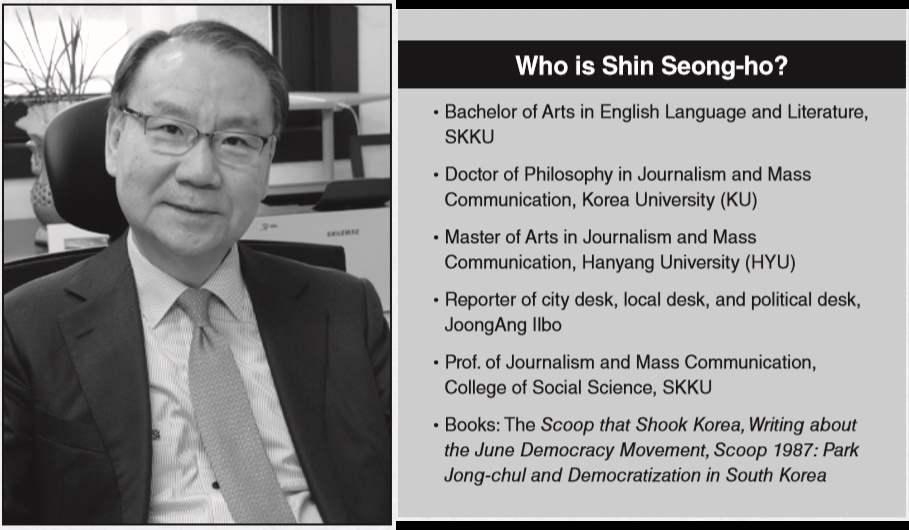
Q1. Why did you decide to become a reporter?
It was when I was a sophomore in high school that I decided to become a reporter. Back then, I thought a lot about my future. I wanted to live a life not for my personal pursuit but for my neighborhood, society, and the country. As a result of contemplating for a long time, I finally reached the answer of becoming a reporter. I kept this thought in my mind until entering university, so I applied for and passed the examination to be a reporter at the Tongyang Broadcasting Company (TBC) in my senior year of college. Hanahoe, however, a group of military officers that took power after the Park Chung-hee government, suddenly merged most of the media leaving only a few people with the power to suppress the press easily at that time. As TBC, a broadcasting station owned by the JoongAng Ilbo, a Korean newspaper established in 1965, was merged into the Korean Broadcasting System (KBS), the JoongAng Ilbo canceled the pass of trainee reporters for that year. I wandered a lot at first, but eventually joined a big company after graduation. Nevertheless, I did not feel rewarded since it was not the way that I wanted to live, so I quit the job three months after. I applied for JoongAng Ilbo’s reporter examination again, passed it, and worked as a reporter there for 30 years.
Q2. In the movie 1987 which was released last year, based on the June Democracy Movement in 1987, there is a character based on you who was the first reporter to report the death of Park Jongcheol. Are there any differences between the movie and reality? Please explain to the Kingos about the situation at that time.
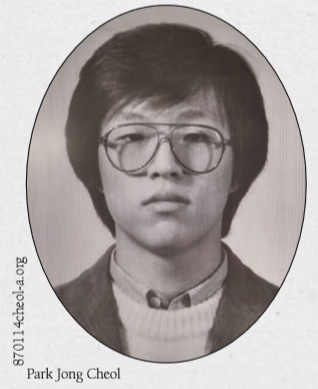
The movie depicted the situation as if I had luckily heard of the death of Park Jong-cheol in the room of the prosecutor, but the coverage process was unfortunately omitted in the movie. In reality, it was hard and took a lot of time to cover the case, so I personally felt very sorry for that omission. It was the same as in the movie though, that I got a clue for the case from casual talk with a prosecutor, but the coverage process was much more complex. On the very day, I was wandering in the Supreme Prosecutor’s Office to get something to write about and visited the room of the intimate prosecutor. I listened to a few words including “student, die, Namyeongdong” coming from him. Every reporter at that time would have been able to know that there was something big happening just by hearing the word Namyeong-dong, as there was an anti-communist investigation room. The room was not used for its own purpose at that time. The police took away and tortured pro-democratic activists who were not even related to spying. I also asked another prosecutor about the dead student. He answered that the police reported the cause of his death as a shock and that he would have to check whether there had been any harsh treatment or not.
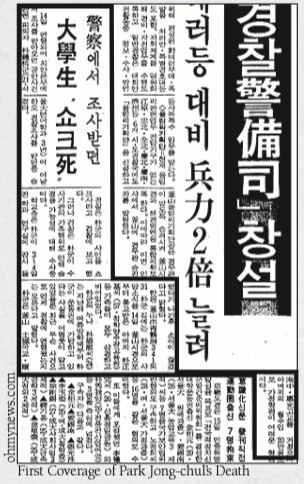
Meeting a lot of people, I also ascertained the fact that the student was taken from his boarding house in Sillim-dong by the police for protesting on campus. I still could not figure out who he was, though. Finally, I discovered the fact that his last name was Park, and that he was a junior majoring in the Department of Linguistics at Seoul National University (SNU) from the prosecutor who was in charge of the school. I checked the school register and eventually found out that he was Park Jong-cheol. After hearing from his sister that her parents went to Seoul once they had been notified that her brother died during the interrogation, I started to send the report to the newspaper over the phone. A rotary printing press was already working at that time, but we stopped the printing press and published this news as a two-column article in the general news section.
Q3. It seems like it would not have been easy to report the case under the harsh dictatorship. Were you not afraid that the government would take some action after the reporting?
At that time, the freedom of the press was totally suppressed since the government had a division that controlled public relations in newspapers at the Ministry of Culture and Public Information. The major rule of the division was to give reporting guidelines to the press every day, which was about “what to report,” “what not to report,” and “what never to report” about an issue. Meanwhile, for the articles related to publicizing the government, there was a guideline to report them largely. People at the division called newspapers every day, and sometimes there was even a call from the Agency for National Security Planning. Nevertheless, I thought that it was not a supposable case that a student had died during interrogation and thus the public had to be informed. After I reported the case in a two-column article, a senior told me that my coverage would become history and he quoted the Watergate scandal which was known to the world from a one-column article.
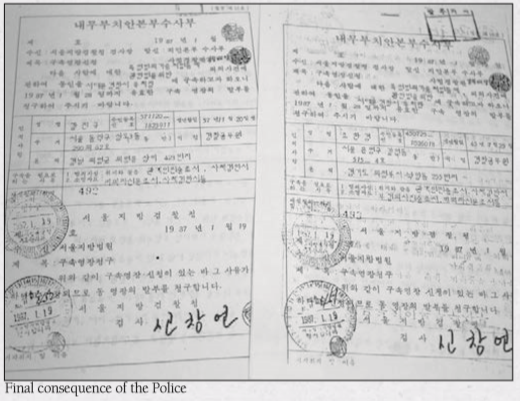
I was hiding at a nearby inn since there was a possibility that the Agency for National Security Planning would take me for having written the article. I thought I could be expelled from the newspaper since the country was under the power of authoritarianism and was worried about my family: my parents, wife and two young children. I got up the courage with the thought that I would not be ashamed when my children or junior reporters asked me what I wrote afterward. I was sure that I would majestically answer that I had written the article reporting the student’s wrongful death.
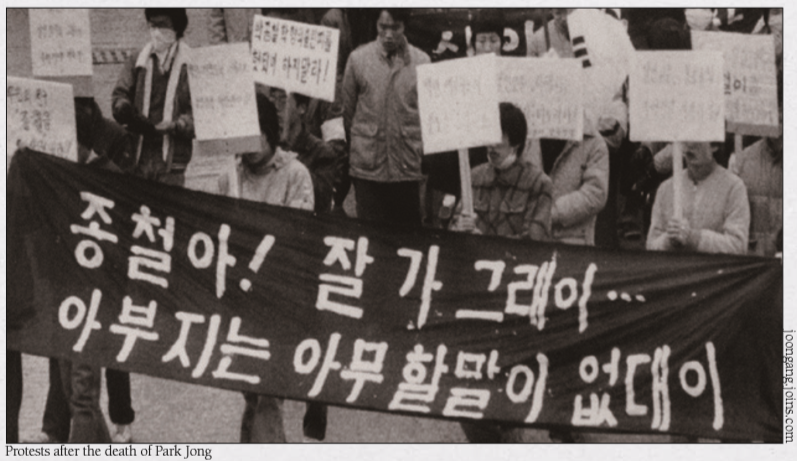
Q4. Nowadays, many people seem to have lost faith in reporters, unlike in the past when one brave article could be the beginning of democratization. What do you think is the reason for this and the possible solution to overcome this reality?
I agree that it is one of the biggest problems these days and that the press has lost its credibility. The journalistic ecosystem has changed; in other words, the media has become way too large compared to the population of Korea. We have a lot of TV channels, newspapers and even too many Internet media outlets. Therefore, journalists have never been more competitive than now. In the past, when one of the media outlets scooped a big issue, other media outlets “checked” whether it was true or not first before “receiving” (writing) the article. Nowadays, many reporters tend to report provocative and unchecked facts to simply increase the number of hits rather than the truth after checking the facts or scenes. Incorrect reports, of course, might be made by mistake as speed matters when it comes to press coverage, but the Korean press is suffering from a structural problem. Reporters tend to just copy first, thus, if one medium writes something incorrectly or exaggerates its reports, others then report incorrectly, as well. One representative example was the numerous incorrect articles about the Sewol Ferry Disaster. Restoring public trust in the press is something that the press should solve by itself. Though the trust will not be recovered overnight, the press should try to cover the trust for people through reinforcing scene-checking coverage and reporting with deep analysis.
Q5. What do you think the role of a reporter?
I think there are mainly two roles for a reporter, which are the same as the text books states; the first one is to pursue the truth and the second one is to watch state power. Reporters should never stop pursuing the truth because it can never be clear whether the “truth” that the reporter is reporting is real, since the “truth” will always be reported on from a person’s own perspective. It is also important to become a watchdog of politicians. I think that criticism is one of the important attributes of a reporter. When there is a phenomenon, a reporter should check out the cause of the problem and suggest possible solutions. If the government achieves 98% of the policy, reporters should not applaud it but criticize the unachieved 2%.
Q6. Any last words for the Kingos?
Ever since I came back to my alma mater to teach students, I have been feeling very happy to teach them, and the Kingos also have seemed to be really smart and study hard. In my opinion, however, students are somewhat individualistic these days. They look like they have no concern for their neighborhood or society, but only seem to care more about themselves. It is, of course, necessary to take care of their own futures like seeking for jobs, but it is also important to think about what they should do as members of society and what they can contribute to society. I hope the Kingos have warm hearts and care about things around them, and the wider society.
June is a very meaningful month in honor of the June Democracy movement which occurred in 1987. Thanks to many people who fought hard and sacrificed their lives for the democratization of Korea against the dictatorship, Korea, now, is democratic and free. Since people do not trust in journalism a lot these days, the story of Professor Shin Seong-ho might mean a lot to aspiring future journalists. The SKT hopes that the spirit of journalism that he showed through his brave article will last forever.
